


Kyoto Prefecture
Asia
/
Japan
/
Kyoto Prefecture
Located in the heart of Japan's Kansai region, Kyoto serves as a living representation of Japanese culture and history. Enclosed by mountains on three sides, it forms a basin that experiences distinctive seasons - from the cherry blossom abundance of spring to colorful autumn leaves, humid summers, and occasionally snowy winters.
In contrast to the modern hustle of Tokyo, Kyoto operates at a more reflective pace where ancient customs seamlessly merge with present-day life. You might notice a maiko (apprentice geisha) rush to an appointment while students whizz past on bicycles. The city's systematic layout, influenced by old Chinese urban planning, makes it surprisingly easy for first-time visitors to navigate.
The element that distinguishes Kyoto is its impressive concentration of cultural landmarks - over 1,600 Buddhist temples, 400 Shinto shrines, and 17 UNESCO World Heritage sites. The city's signature experiences involve participating in a conventional tea ceremony, meandering through the extraordinary Arashiyama Bamboo Grove, and trying Kyoto-style kaiseki dining, renowned for its seasonal ingredients and artistic presentation.
You won't want to miss the iconic golden pavilion of Kinkaku-ji, shimmering brilliantly in its mirror pond, or the enigmatic Fushimi Inari Shrine with its thousands of vermilion torii gates aligned up the mountainside. For a truly immersive encounter, make dawn visits to Kiyomizu-dera temple to enjoy both stunning city views and the chance to observe morning prayer rituals.

Get to Know Kyoto Prefecture
Take a tour of this destination's highlights
Inspiring Reads on Kyoto Prefecture

Travel Tips for Kyoto Prefecture
What you need to know before traveling here
Getting Around Kyoto Prefecture
A guide to Kyoto Prefecture's local transportation
Kyoto's wide-ranging bus network covers most key attractions. You can buy a one-day bus pass at any primary station or convenience store. Get on from the back door and exit through the front, paying as you leave. Both Japanese and English electronic displays and announcements are available.
Practical Tips for Kyoto Prefecture
Things to prepare and best way to visit
Cherry blossom season from late March to early April and November for autumn colors are the peak times. May and October offer lovely weather and fewer tourists.
Despite Japan's cutting-edge reputation, several smaller places are cash-only. It's recommended to carry an estimated ¥10,000-20,000 ($70-140) daily. Seven-Eleven ATMs reliably accept international cards.
Major sites and stations commonly have English signage, but English speakers are relatively scarce. Essential Japanese phrases are handy, and don't forget Google Translate.
Most temples don't necessitate booking, but it's advisable to reserve popular activities like tea ceremonies and meditation sessions ahead of time. During peak seasons, some temples require advance registration.
A modest dress code is appreciated - remember to cover your shoulders and knees. Certain temples necessitate removing shoes, so wear footwear that's easy to remove and make sure your socks are clean.
See All Practical Tips for Kyoto Prefecture

Explore Kyoto Prefecture
Create your itinerary with our top picks below
Set off your journey to Kyoto Prefecture
Plan smart & save big! Use discount code BISAYUK only for you

Flights

Hotels

Xperience

Get to Know Kyoto Prefecture

Travel Tips for Kyoto Prefecture

Explore Kyoto Prefecture
More Destination Near Kyoto Prefecture

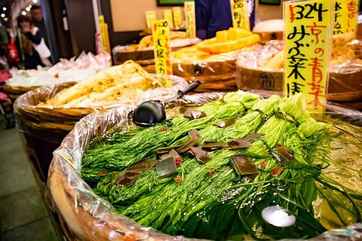


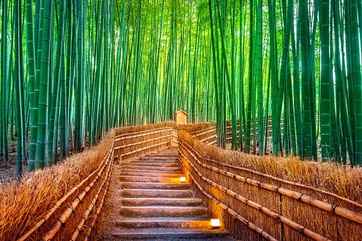

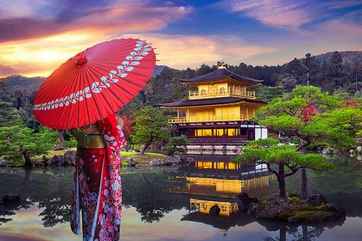






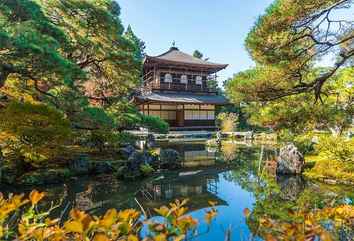














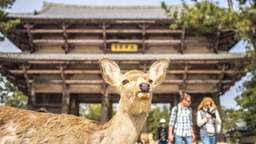





![[One-day tour from Kyoto to Nara] 3-hour tour of Arashiyama and Nara Park (from Osaka and Kyoto), 1.067.118 VND](https://ik.imagekit.io/tvlk/xpe-asset/AyJ40ZAo1DOyPyKLZ9c3RGQHTP2oT4ZXW+QmPVVkFQiXFSv42UaHGzSmaSzQ8DO5QIbWPZuF+VkYVRk6gh-Vg4ECbfuQRQ4pHjWJ5Rmbtkk=/3072794944252/-One-day-tour-from-Kyoto-to-Nara-3-hour-tour-of-Arashiyama-and-Nara-Park-%2528from-Osaka-and-Kyoto%2529-ec530a6f-23cc-41d8-ac06-43ebe62fa042.jpeg?_src=imagekit&tr=c-at_max,h-456,q-60,w-256)



![[Osaka Check-in Hotspot] Katsuo-ji Temple x Minoh Falls x Arashiyama Bamboo Forest x Todai-ji Temple x Nara Park | Osaka Day Tour, 1.640.952 VND](https://ik.imagekit.io/tvlk/xpe-asset/AyJ40ZAo1DOyPyKLZ9c3RGQHTP2oT4ZXW+QmPVVkFQiXFSv42UaHGzSmaSzQ8DO5QIbWPZuF+VkYVRk6gh-Vg4ECbfuQRQ4pHjWJ5Rmbtkk=/5302561090382/-Osaka-Check-in-Hotspot-Katsuo-ji-Temple-x-Minoh-Falls-x-Arashiyama-Bamboo-Forest-x-Todai-ji-Temple-x-Nara-Park-Osaka-Day-Tour-4bb1aad4-85a4-4057-9029-21e65355fd0d.jpeg?_src=imagekit&tr=c-at_max,h-456,q-60,w-256)











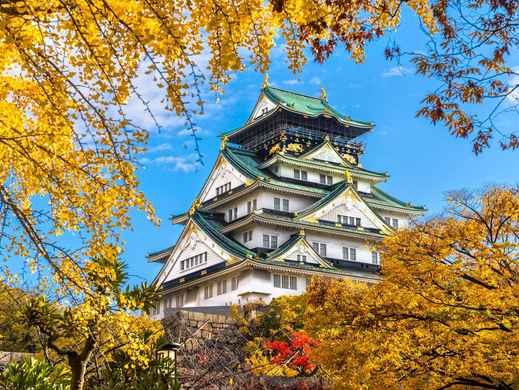


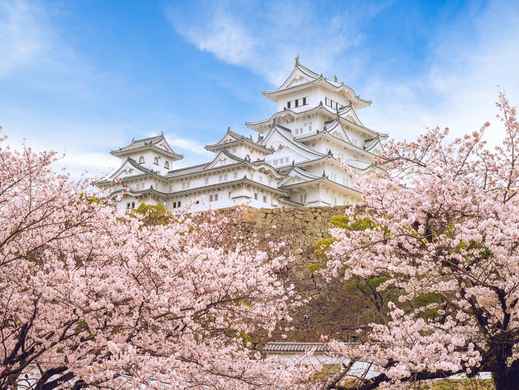


 Facebook
Facebook Instagram
Instagram TikTok
TikTok Youtube
Youtube Telegram
Telegram
